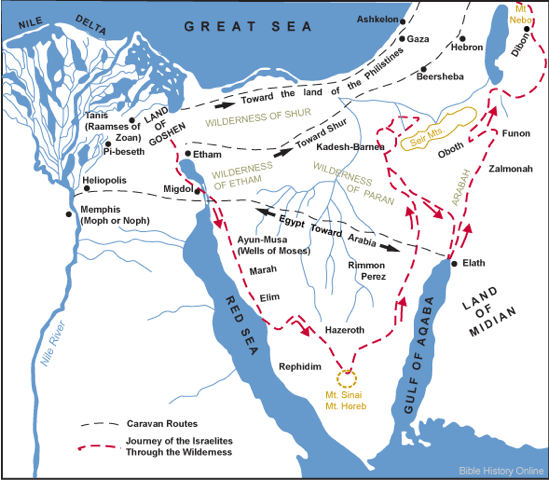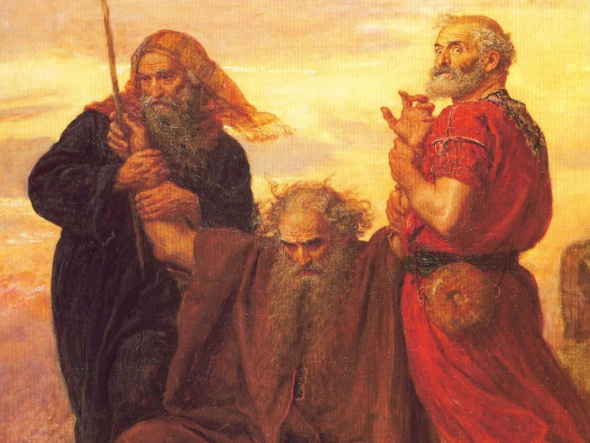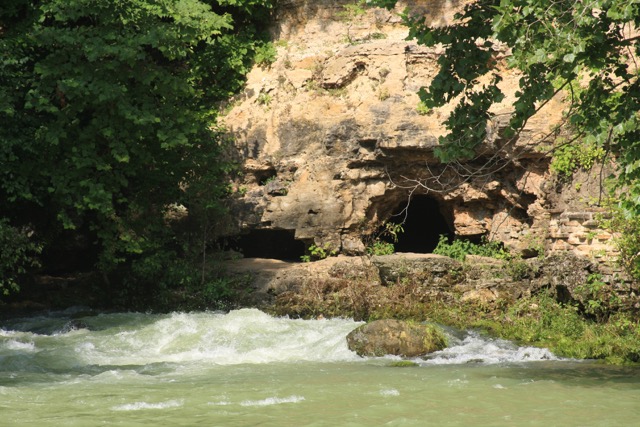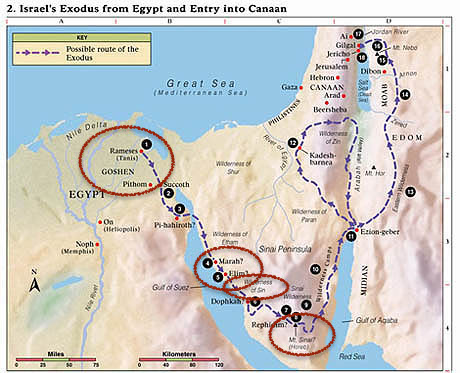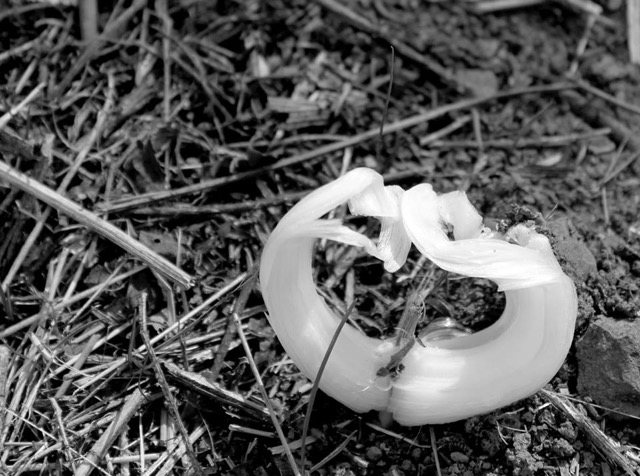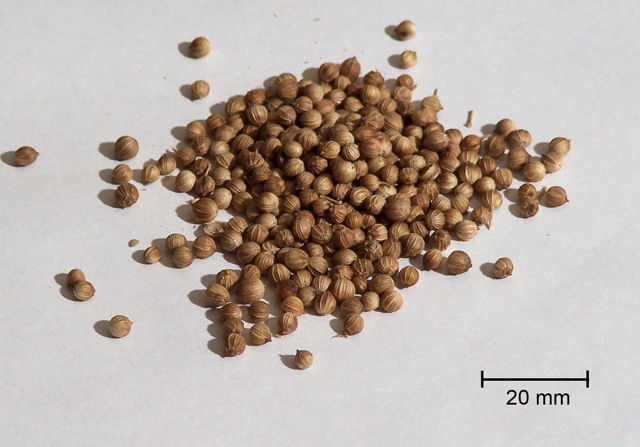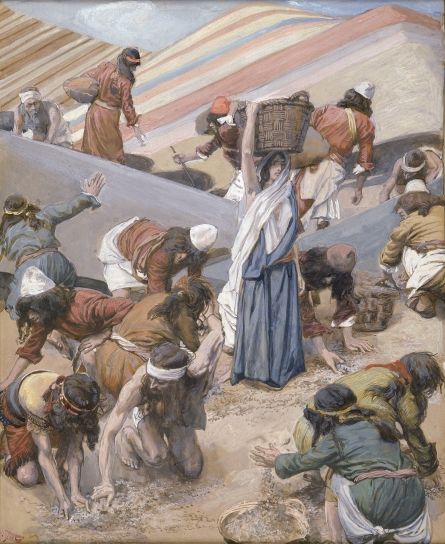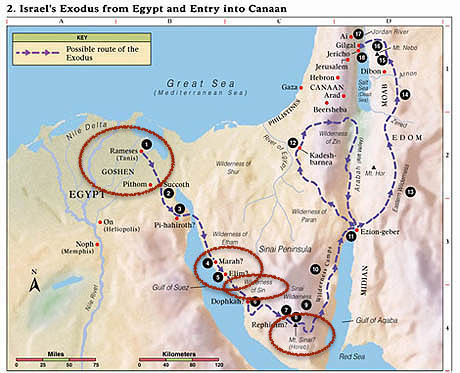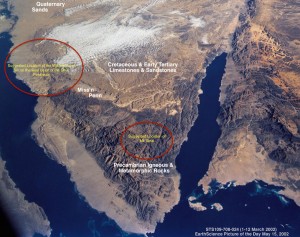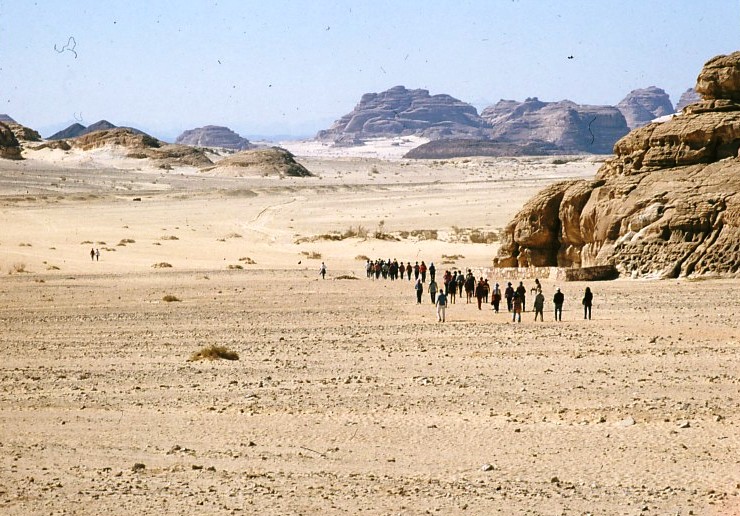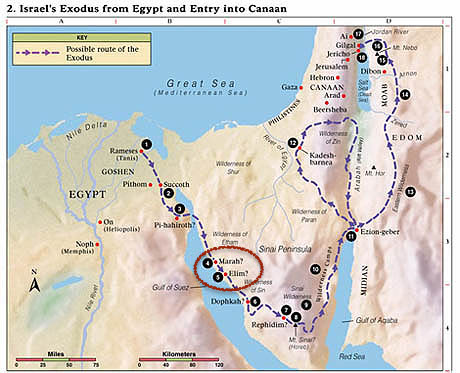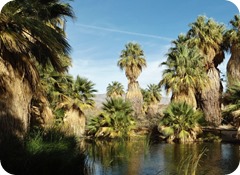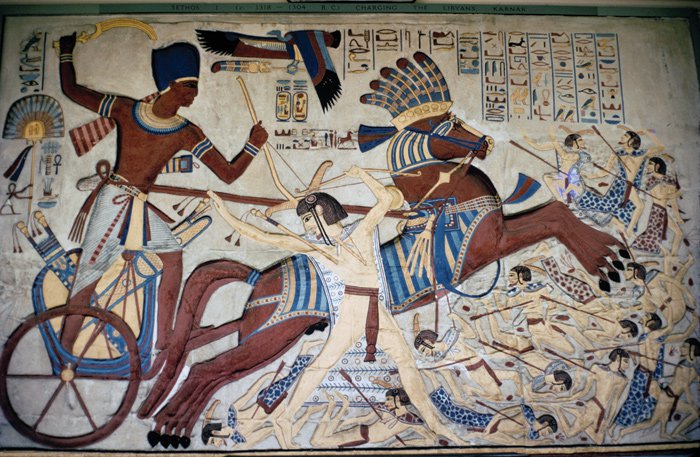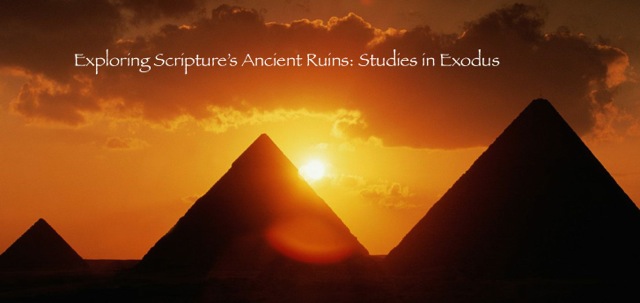
©1998-2015
Fellowship
Life of Moses
Lesson 29
When the Foes Keep Coming…
Exodus 17:1ff
Introduction…What’s on your heart right now? Now? Are you at peace? Or are you burdened down with fear and worry? Are you arms lifted up and outstretched to heaven’s eventual triumph or are they fallen in fear and discouragement?
In both these divine rescues, Moses will be directed to use the rod or staff that God had given him to shepherd his people to deliver them, despite their lack of trust that indeed they will be delivered. Has God given you a staff? Something by which he will use to prove his deliverance in your current predicament?
Our hope or desire is never to be in stress or challenge, but without the stress or challenge, there is no dependence, no cry out to God for his deliverance, no hope of his love and no strengthening of faith or trust that he will provide because he has provided in the past. If you want to be freed from being an abused serf in someone else’ abundance to owning a piece of your own heaven, then be prepared for constant, challenge, risk and danger in getting there. But with that risk-filled journey comes a divine Deliverer—God—and that my friends, is the real journey…trusting the Invisible, the Divine.
General Introduction: Moses led by God is leading the children of Israel, perhaps as many as 2-3 million strong, away from Egypt and closer to the land promised to the forefathers many seven centuries before. But their journey is not without its problems.
Recent Studies…
The sons and daughters of Israel sing out their praise to Yahweh because in what Yahweh God has just done in not only delivering Israel from utter annihilation at the hands of Pharaoh’s massive army. Ex. 15:1ff.
After healing Marah’s bitter waters, Yahweh tests Israel with a lasting ordinance—if you keep my laws, I will keep you safe from all the things that the Egyptians feared. Ex. 15:22ff.
Now, with their backs seemingly up against another wall–the wall of daily sustenance in the desert, the whole community rises up to turn its collective fear and complaint towards God’s servants. Ex. 16:1ff.
Last Week… First the People are commanded to gather and keep enough manna only for that day; Second, they are told to gather twice as much on the sixth day and to save a portion of it for the seventh day because this day is to be a day of rest that belongs to the Lord. And yet despite God’s clear commands, some will still disobey God, attempting to gather too much manna or gathering it on the Seventh day. Both attempts fail, angering both Moses and Yahweh. Finally, Israel is told to set aside into perpetuity one daily sample so that generations to come may know how Yahweh God provided for his people during on their way to the Promised Land. Ex. 16:19-36.
Pray
Read Passage several times…
Ask Questions…
First Story…
Exod. 17:1 The whole Israelite community set out from the Desert of Sin, traveling from place to place as the LORD commanded. They camped at Rephidim, but there was no water for the people to drink.
Where is the Desert of Sin? Why was it called Sin? Was it a bad place? Is this where we get the biblical word “to sin,” as “to miss the mark” from? How far did they travel at any one time? Ten miles? Twenty? I can’t imagine how far over two million people can travel in a day, and how far of a line would the traveling caravan have stretched? Each new embarking had to be fraught with the peril of finding little to no water. What a seemingly impossible and desperate journey of trust, faith and courage. You can’t go back to Egypt. There are nations living in the land you are traveling to and there are so many people traveling there under harsh, desert conditions. It was certainly a journey of trust and dependence.
2 So they quarreled with Moses and said, “Give us water to drink.” Moses replied, “Why do you quarrel with me? Why do you put the LORD to the test?”
Why did they quarrel? Were they about to die of thirst? Why does Moses ask, “Why do you put the Lord to the test”? Did this represent Israel’s doubting that the Lord would provide for them?
3 But the people were thirsty for water there, and they grumbled against Moses. They said, “Why did you bring us up out of Egypt to make us and our children and livestock die of thirst?”
On the one hand this is understandable. Why would God do this? On the other hand, he has always provided before. Why would he not now? Is this “putting God to the test”? Oh, the struggle…to trust, based on previous provisions, or to doubt and panic?
4 Then Moses cried out to the LORD, “What am I to do with these people? They are almost ready to stone me.”
Because they can see you. They can’t stone a cloud. Been there and done that.
5 The LORD answered Moses, “Walk on ahead of the people. Take with you some of the elders of Israel and take in your hand the staff with which you struck the Nile, and go.
Crazy faith?
6 I will stand there before you by the rock at Horeb. Strike the rock, and water will come out of it for the people to drink.” So Moses did this in the sight of the elders of Israel.
Horeb? Is this also Sinai, where the Children of Israel will receive the Law? Is this the place of their wedding with God, where they will receive their covenant and Law? How did this water come out of a rock? Was it like a spring?
7 And he called the place Massah and Meribah because the Israelites quarreled and because they tested the LORD saying, “Is the LORD among us or not?”
Second Story…
8 The Amalekites came and attacked the Israelites at Rephidim.
Are we at the same place or have we journeyed further? And who are the Amalekites? Were they fierce or were they just threatened? And how many? And is word out and the nations lining up to defend their lands?
9 Moses said to Joshua, “Choose some of our men and go out to fight the Amalekites. Tomorrow I will stand on top of the hill with the staff of God in my hands.”
Finally, a military force. And once again, the supernatural staff that turns into a snake and that smote the Nile, the Red Sea and now a rock to deliver water, is about to figure into the Children of Israel’s deliverance once again.
10 So Joshua fought the Amalekites as Moses had ordered, and Moses, Aaron and Hur went to the top of the hill.
11 As long as Moses held up his hands, the Israelites were winning, but whenever he lowered his hands, the Amalekites were winning.
That’s a long time to hold up one’s arms. Why attach the battle’s success to Moses’ raised arms?
12 When Moses’ hands grew tired, they took a stone and put it under him and he sat on it. Aaron and Hur held his hands up –one on one side, one on the other –so that his hands remained steady till sunset.
A most logical and ingenious solution…keep the hands up anyway you can…
13 So Joshua overcame the Amalekite army with the sword.
14 Then the LORD said to Moses, “Write this on a scroll as something to be remembered and make sure that Joshua hears it, because I will completely blot out the memory of Amalek from under heaven.”
Who were these people? Why did God want to wipe them out?
15 Moses built an altar and called it The LORD is my Banner.
16 He said, “For hands were lifted up to the throne of the LORD. The LORD will be at war against the Amalekites from generation to generation.”
Is God using the Children of Israel’s sojourn to judge pagan nations?
Who? (1st) Israelites, LORD, Moses, our children, elders of Israel, (2nd) in addition to the first story: Amakelites, Joshua, Aaron, Hur
Where? (1st) from the Desert of Sin, traveling from place to place, Rephidim, out of Egypt, on ahead of the people, the Nile, rock of Horeb, in the sight of, Massah and Meribah, (2nd) at Rephidim, go out, on top of the hill, in my hands, held up, under him, on one side, one on the other, under heaven, the throne of God
When? Tomorrow, as long as, whenever, when Moses’ hands grew tired, then the Lord, from generation to generation
What?
• The Israelites travel to Rephidim where there is no water.
• They begin to doubt and quarrel with Moses because of the lack of water. 2-3
• Moses cries out to God because they are about to stone him. 4
• The LORD directs Moses, along with the elders, to walk ahead of the people and to strike the rock of Horeb. 5-6a.
• Moses does and water comes gushing out. 6b
• Moses called this place Massah and Meribah because the people grumbled and doubted God’s presence. 7
• Then the Amakelites come out and attack them. 8
• Moses tells Joshua to go out and fight them. Moses will take the staff of God to the top of the overlooking hill. 9-10
• As long as Moses held his hands up, the Israelites were winning, but when he would drops his hands they began to lose. 11
• So they provided a rock for his to sit on and they held his arms up until sunset. Eventually the Israelites defeated the Amakelites. 12-13
• The Lord commanded Moses to write this down. 14
• After which he built an altar and named it “The Lord is my Banner.” 15-16
Summary…Via His staff, God delivers Israel from two fierce enemies; a scarcity of water and a fierce foe.
Why?
• People doubt quickly, even when God has provided many times before. In other words, people have short-term memories, and they panic. Been there and seen that.
• When desperate, the mob will point its finger or focus its blame on visible leadership. Someone has got to take the fall. If we can’t fix it, then the nation must have blood. It can’t be just to cry out to God for help.
• God is faithful. He delivers and protects his people, his charge…his responsibility.
• It is God who is our source of power and strength.
• God allows life’s different dangers to threaten us in order to see if we will trust in him.
• Leadership can’t do it all by themselves; they need those whom they lead’s support.
• It is appropriate and good to commemorate God’s deliverance.
• In delivering one person or set of people God may be judging or disciplining another person or group of people. God is multitasking in his purposes.
So What?
2003 Application…
Struggles…a busy day, finishing up this lesson, participating in a wedding at our church, finishing up the message. Sunday evening. Next week, Jordan has a college baseball tryout; I am trying to find a tractor, plant some grass on the ball field and prepare for the Carpenters’ return to our church, as well as Father’s Day, etc.
Truths…Don’t panic in the midst of a fierce foe; trust God even up to the last second.
Application…Keep walking ahead with the staff of God in my hand. The staff today, I would assume would be God’s Spirit—his power becoming my power—as particularly manifested via prayer and his word. I am going to trust God to get me through this next crucial week or so, walking by faith that indeed he will see me through.
On an average day, 288 million gallons of water, enough to fill St. Louis Cardinal’s Busch stadium in 33 hours, will bubble up from the earth beneath at Big Springs near Van Bure, MO.
2015 Application…
Thanksgiving…God has been faithfully gracious to me on so many levels here lately. My life is a thanksgiving. People have helped me at just the right moment too many times to mention; I had an amazing afternoon with my Spiritual daughter, who went to sleep that night dreaming of the Spiritual story that I had been waiting to tell her for ten years—that her safety and security is NOT in a guy, but eternally secure in her kinsman redeemer, Jesus. I am indeed blessed.
Struggle…trusting God that as he has so often delivered in the past, that he will deliver again and that it will be his weekend with our college friend Nancy, the most interesting person on the planet, here to sing and share at Fellowship this weekend. I want it to be a good weekend for her, for us and for Fellowship.
Truth…That as God has always provided for us in the past, he will continue to provide for us on our journey home. And yet, without hardship or stress, there is no provision, no trust, no deliverance. The world can be a very difficult place. Leaving Egypt, traveling to Canaan, and going through the desert to get there are all threats. Can we trust his provision in the midst of little being like heaven or perfect?
Application…Today, this weekend, Sunday, this season in my life…these past thirty years at Fellowship, or almost forty years of deeply growing in my faith, or almost fifty since I trusted his sacrifice as an atoning payment for all my sinful imperfections, which is much, all represent my journey of having left the enslaving security of my own personal sinful Egypt and traveling through this world or life’s dangerous desert journey to my heavenly promise land, saturated with milk and honey. And with each trial or trying adventure is the moment in which I can panic, grumble and rebel because I see threat or to cry out to my Redeemer and trust his eventual deliverance. Each moment…Nothing has changed, except that with each trial and corresponding desperate trust comes greater confidence, hope, love and trust. I accept the journey. I want the Promise Land without the struggle, but I accept the journey. I accept the dangers. I accept the threats, but I also accept your deliverance…
Your struggles?
Truth?
Application?
Scripture quotations, unless noted otherwise, are taken from the Holy Bible: New International Version‚ NIV‚ Copyright 1973, 1978, 1984, International Bible Society. Used by permission of Zondervan Bible Publishers. All rights reserved.

